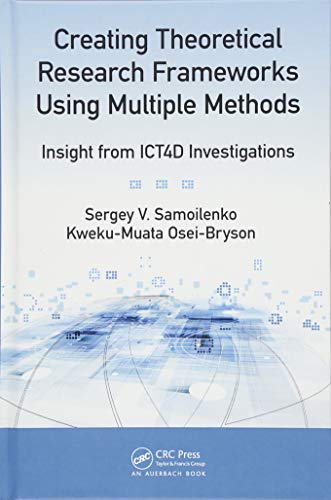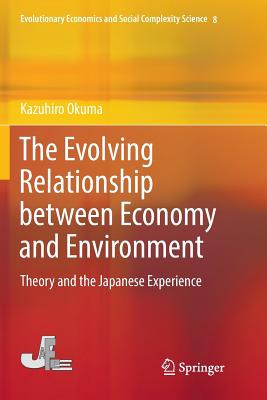Creating Theoretical Research Frameworks using Multiple Methods: Insight from ICT4D Investigations
暫譯: 使用多種方法建立理論研究框架:來自ICT4D研究的洞見
Sergey V. Samoilenko, Kweku-Muata Osei-Bryson
- 出版商: Auerbach Publication
- 出版日期: 2017-10-26
- 售價: $7,200
- 貴賓價: 9.8 折 $7,056
- 語言: 英文
- 頁數: 419
- 裝訂: Hardcover
- ISBN: 1498779956
- ISBN-13: 9781498779951
-
相關分類:
管理與領導 Management-leadership
海外代購書籍(需單獨結帳)
商品描述
By now, it is commonly accepted that investments in information and communication technologies (ICTs) can facilitate macroeconomic growth in developed countries. Research standards in ICT for development (ICT4D) are high, and it is a basic expectation that a theoretically sound conceptual investigation should yield actionable results. An additional expectation is that an on-the-ground study conducted in each setting should add to the common body of knowledge based on theory. In other words, one is expected to make a connection between the world of concepts and the world of reality. Middle-range theories and frameworks could help connect the case studies with grand theories, by helping to create a theoretically sound and practically applicable research architecture of ICT4D.
This book demonstrates how creative use of various data analysis methods (e.g., data mining [DM], data envelopment analysis [DEA], and structural equation modeling [SEM]) and conceptual frameworks (e.g., neoclassical growth accounting, chaos and complexity theories) may be utilized for inductive and deductive purposes to develop and to test, in step-by-step fashion, theoretically sound frameworks for a large subset of ICT4D research questions. Specifically, this book showcases the utilization of DM, DEA, and SEM for the following purposes:
- Identification of the relevant context-specific constructs (inductive application)
- Identification of the relationships between the constructs (inductive application)
- Development of a framework incorporating the constructs and relationships discovered (inductive application)
- Testing of the constructed framework (deductive application)
The book takes a multi-theoretical perspective to economic development research. It starts with an overview of ICT4D. Next it covers such frameworks and theories as neoclassical growth accounting and the theory of complementarity, complex systems and chaos theories, and the product life cycle (PLC) theory. There are also nontechnical overviews of the DM and data analytic methods that can be used in this research. Also presented is evidence that human capital and investment capital are complementary and are reliable sources of economic growth. The book concludes with methodological frameworks to guide investment decisions and the formulation of strategic policy.
商品描述(中文翻譯)
目前,投資於資訊與通信技術(ICT)能促進已開發國家的宏觀經濟增長已被普遍接受。ICT發展(ICT4D)的研究標準很高,理論上健全的概念調查應該能產生可行的結果是基本的期望。另一個期望是,在每個環境中進行的實地研究應該能基於理論增進共同的知識體。換句話說,應該在概念世界與現實世界之間建立聯繫。中範疇理論和框架可以幫助將案例研究與宏大理論連接起來,通過幫助創建一個理論上健全且實用的ICT4D研究架構。
本書展示了如何創造性地使用各種數據分析方法(例如,數據挖掘 [DM]、數據包絡分析 [DEA] 和結構方程模型 [SEM])及概念框架(例如,新古典增長核算、混沌與複雜性理論)來進行歸納和演繹,逐步開發和測試理論上健全的框架,以解決大量的ICT4D研究問題。具體而言,本書展示了DM、DEA和SEM的以下用途:
- 識別相關的特定情境構念(歸納應用)
- 識別構念之間的關係(歸納應用)
- 開發一個包含所發現的構念和關係的框架(歸納應用)
- 測試所構建的框架(演繹應用)
本書採取多理論視角來進行經濟發展研究。首先概述ICT4D。接著涵蓋新古典增長核算、互補理論、複雜系統與混沌理論以及產品生命週期(PLC)理論等框架和理論。還有對於在此研究中可以使用的DM和數據分析方法的非技術性概述。此外,還提供了人力資本和投資資本是互補的且是可靠的經濟增長來源的證據。本書最後以方法論框架作結,以指導投資決策和戰略政策的制定。










